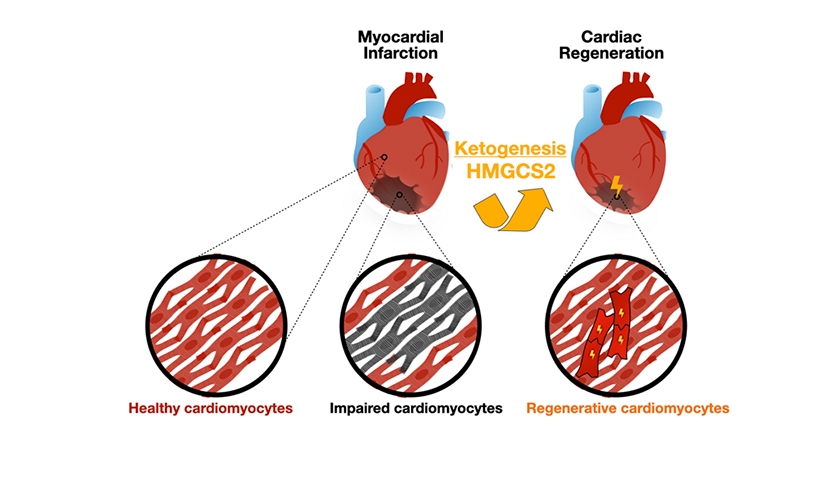Heart disease is the leading cause of death worldwide, with myocardial infarction (heart attack) being the most common cause. Heart transplantation is still the optimal treatment for the disease, but there are insufficient donors to meet the demands. In mammals, including humans, cardiac muscle cells (cardiomyocytes) cannot keep dividing and forming new cells after birth, meaning we are unable to regenerate the heart after injury. However, some animals such as salamander and zebrafish can successfully regenerate the heart after injury, using a process called “dedifferentiation”. A new study led by Dr. Patrick CH Hsieh’s group, at the Institute of Biomedical Sciences, has shown that ketone production in the heart links to this dedifferentiation process and can allow for regeneration after injury. This study was recently published in Circulation.
For more information: https://www.ibms.sinica.edu.tw/en/news/2022-458.html
Article link: https://www.ahajournals.org/doi/10.1161/CIRCULATIONAHA.122.061960

